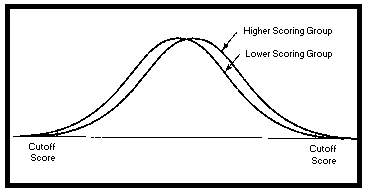In immunology - there is a theory that the antigens in each person's body are apportioned according to exposure; too little variety of exposure results in too many antigens focusing on too few different foreign objects thus resulting in auto-immunity disorders like allergies.
Another branch of immunology believes that the human body incorporates outside 'beneficial' types of bacteria as part of its normal defenses - and that broad spectrum antibiotics affect this balance.
http://www.sfgate.com/cgi-bin/blogs/...entry_id=77917
Another branch of immunology believes that the human body incorporates outside 'beneficial' types of bacteria as part of its normal defenses - and that broad spectrum antibiotics affect this balance.
http://www.sfgate.com/cgi-bin/blogs/...entry_id=77917
You've heard of too much of a good thing, right? Well, humans may just have too much cleanliness for our own good.
Triclosan, the ingredient in most antibacterial soaps and gels, was first developed for use in medical settings. Its benefits there are undeniable. But everyday use of triclosan exposes users to unnecessary chemicals and fails to keep them any healthier than non-users.
Scratch that: It actually makes users sicker. A new study conducted by researchers at the University of Michigan School of Public Health found that, among those 18 and under, higher levels of triclosan in urine correlated with higher rates of allergies. The researchers drew from data produced for the the 2003-2006 National Health and Nutrition Examination Survey.
You see, triclosan doesn't just target the bacteria that make us sick; it targets all bacteria — and some bacteria are beneficial to humans.
"The triclosan findings in the younger age groups may support the 'hygiene hypothesis,' which maintains living in very clean and hygienic environments may impact our exposure to micro-organisms that are beneficial for development of the immune system," said Allison Aiello, associate professor and the principal investigator.
The findings, the authors also noted, document a strong correlation, but do not prove causality. The study appears in Environmental Health Perspectives.
Triclosan, the ingredient in most antibacterial soaps and gels, was first developed for use in medical settings. Its benefits there are undeniable. But everyday use of triclosan exposes users to unnecessary chemicals and fails to keep them any healthier than non-users.
Scratch that: It actually makes users sicker. A new study conducted by researchers at the University of Michigan School of Public Health found that, among those 18 and under, higher levels of triclosan in urine correlated with higher rates of allergies. The researchers drew from data produced for the the 2003-2006 National Health and Nutrition Examination Survey.
You see, triclosan doesn't just target the bacteria that make us sick; it targets all bacteria — and some bacteria are beneficial to humans.
"The triclosan findings in the younger age groups may support the 'hygiene hypothesis,' which maintains living in very clean and hygienic environments may impact our exposure to micro-organisms that are beneficial for development of the immune system," said Allison Aiello, associate professor and the principal investigator.
The findings, the authors also noted, document a strong correlation, but do not prove causality. The study appears in Environmental Health Perspectives.



 .
.
Comment